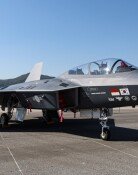Are salaried workers geese whose feathers can be plucked?
Are salaried workers geese whose feathers can be plucked?
Posted August. 10, 2013 04:30,
Cho Won-dong, senior secretary to President Park Geun-hye for economic affairs, held a briefing to reporters for about an hour on the governments tax code overhaul proposal, saying that media reports on the proposal was too fragmentary. However, the ruling Saenuri Party voiced a different view, apparently with an eye to next years local elections. Choi Kyung-hwan, the ruling partys floor leader, said the proposal should be corrected if it excessively increases tax burdens on salaried workers, whose incomes are transparently exposed. Kim Gi-hyeon, who heads the partys policy committee, also noted that the issue of increasing tax burdens on the middle class requires comprehensive examination.
It was only late last month that the state-run Korea Institute of Public Finance held a public hearing on the issue. The Ministry of Strategy of Finance held consultative meetings with the ruling party and the presidential office Cheong Wa Dae before announcing the proposal. It is questionable whether the proposal was properly coordinated, as the ruling party and the presidential office voice objections after it was announced.
Finance Minister Hyun Oh-seok held a media briefing on the tax code overhaul proposal Monday. The media reported on the proposal from Thursday morning after an embargo. The media reported that the proposal would increase tax burdens on workers earning an annual salary of 34.5 million won (31,489 U.S. dollars) or more. Some criticized the Park Geun-hye administration for squeezing incomes of salaried workers to foot the bill for the presidents campaign promises of costly welfare programs. If the administration failed to predict salaried workers resentment, it would be fair to say that it has no policy senses.
Taxation is an issue of greatest public interest to which taxpayers react sensitively. Cho noted that people earning annual salaries of 34.5 million won to 70 million won (62,978 collars) should accept an average monthly increase of 13,000 won (11.70 dollars) in income taxes, stressing that the proposal would increase tax burdens on high income earners. He quoted Jean Baptiste Colbert, the 17th century French finance minister under the rule of King Louis XIV as saying, The art of taxation consists in so plucking the goose as to obtain the largest amount of feathers with the least possible amount of hissing. Then he stressed that next years tax code overhaul proposal is intended to achieve the same. It is worrisome that the presidents top economic aide has such a perception that taxpayers are the geese whose feathers can be plucked without knowing it. He might have attempted to show off his knowledge but his inappropriate quotation made many taxpayers angry.
It would cost 135 trillion won (121.5 billion dollars) over the next five years to implement President Parks welfare pledges. The Strategy and Finance Ministry projects that the tax code overhaul proposal would increase the governments tax revenue by nearly 2.49 trillion won (2.2 billion dollars), which is far short of footing the bill for the welfare projects. The presidential office and the government should restructure the welfare projects and reduce public spending first before asking the public to share the burdens. The proposal will not be final until it is approved by the National Assembly. As the government and the ruling party have time to fine-tune the proposal, they should revise the parts that would put too much burdens on salaried workers.







